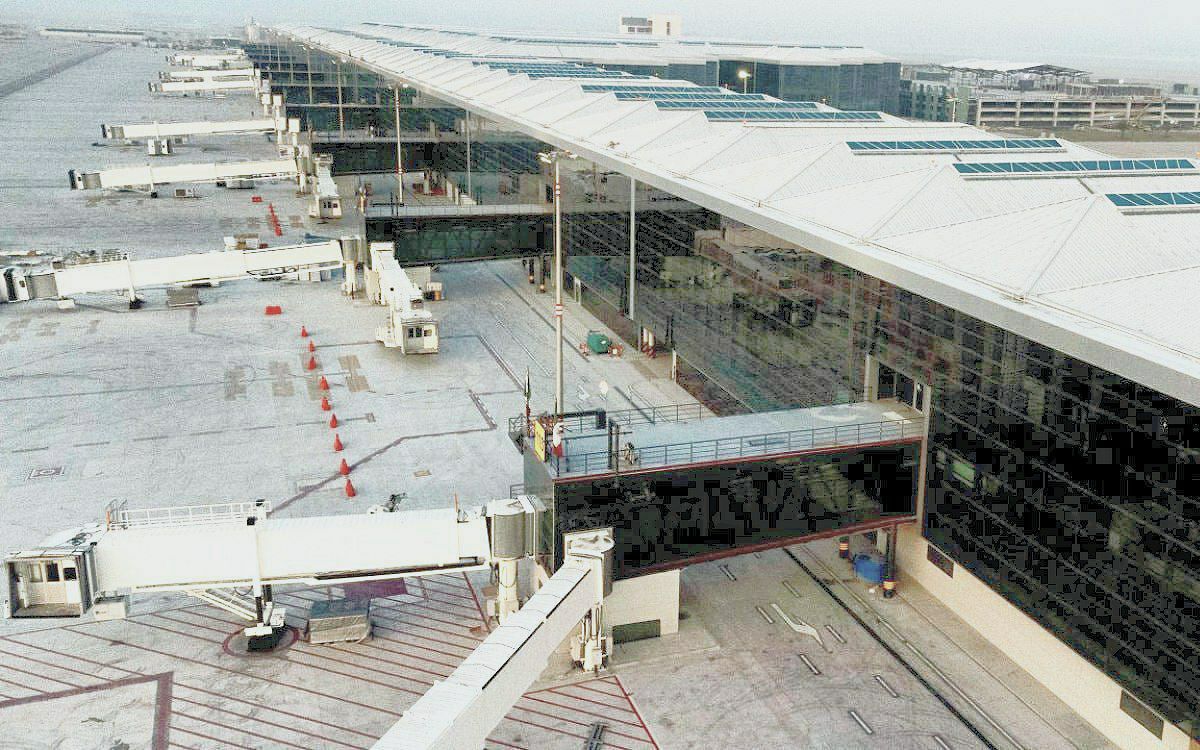Mexico Relocated Cargo Flights to New Airport to Combat Drug Trafficking
 By MexusNews
By MexusNews
In a significant move aimed at tightening security and reducing illegal activities, the Mexican government relocated cargo flights from the congested Mexico City International Airport (AICM) to the newly constructed Felipe Ángeles International Airport (AIFA). The change followed a presidential decree issued on February 2, 2023, which mandated that all‑cargo operations at the AICM cease within 108 business days. (dof.gob.mx)
The government under Andrés Manuel López Obrador made the decision not only to reduce air traffic but also to address concerns about the use of cargo planes in drug trafficking and smuggling operations. According to the news outlet SinEmbargo, the government of AMLO affirmed that the Mexico City International Airport (AICM) had severe problems of control, corruption, and involvement of narcotrafficking. Authorities had identified instances where cargo shipments were being exploited by criminal organizations to transport illegal substances.
President Andrés Manuel López Obrador stated that, at one point, drug traffickers had gained enough power and influence at the airport to interfere with operations, effectively controlling certain aspects.
Carlos Ignacio Velázquez Tiscareño, former Director General of the Mexico City International Airport (AICM), also denounced that the airlines had control “in general, and many other companies did not pay their debts and were following orders from drug groups,” a situation that López Obrador confirmed, explaining that “it got to the point where the traffickers began to give orders at the airport.”
This suggested that some airline operations were functioning under the influence of organized crime, either through collusion or indirect pressure.
This level of criminal influence and corruption at the older Mexico City International Airport (AICM) was later revealed during the trial of Genaro García Luna, Mexico’s former Secretary of Public Security, who was convicted in New York City for collaborating with the Sinaloa Cartel and accepting multimillion-dollar bribes in exchange for protection.
Cargo flights had historically been a critical channel for commerce, but their high volume and complexity also made them a potential avenue for illicit activities. By moving operations to AIFA, the government enhanced monitoring and implemented stricter security protocols, minimizing opportunities for the illegal transport of drugs and other contraband.
The move also addressed logistical challenges. The AICM had faced increasing congestion, which made it difficult to maintain both efficient commercial operations and rigorous security oversight. The newly built AIFA offered modern facilities, expanded capacity, and dedicated infrastructure for cargo operations, which allowed authorities to implement enhanced inspection measures.
As of early 2024, significant progress had been made in relocating cargo operations to AIFA. According to the Secretariat of Infrastructure, Communications and Transportation (SICT), approximately 360,000 tons of goods were scheduled to move from AICM to AIFA. Data from early 2024 indicated that AIFA handled 181,864 tons in 2023, and AICM’s cargo tonnage dropped roughly 60.9%, reflecting a substantial shift of operations. (mexicobusiness.news)
The cargo airlines that were operating in the old airport and need to operate in the new airport through AIFA include:
- Mas Air (Mexico)
- Avianca Cargo México (Mexico)
- Aeroméxico Cargo (Mexico)
- Lufthansa Cargo (Germany)
- Amerijet International (US)
- FedEx (US)
- UPS Airlines (US)
- Avianca Cargo and LATAM Cargo Colombia (Colombia)
- China Cargo Airlines (China)
- China Southern Cargo (China)
- IAG Cargo (Spain)
- Cygnus Air (Spain)
- Martinair (The Netherlands)

Officials emphasized that this transition was part of a broader strategy to strengthen airport security nationwide and disrupt the networks that facilitated smuggling. By centralizing cargo operations at a less congested airport with improved security measures, Mexico sought to curb the misuse of cargo flights while maintaining the efficiency of legitimate trade.
The government reassured businesses and shippers that the move would be coordinated to minimize disruption. Authorities implemented transitional measures and enhanced logistics support to ensure that commercial activities continued smoothly as security and monitoring were intensified.
In summary, the relocation of cargo flights from Mexico City to Felipe Ángeles International Airport represented a targeted approach to combat drug trafficking and smuggling, combining improved security oversight with modern infrastructure to safeguard Mexico’s air cargo operations.

